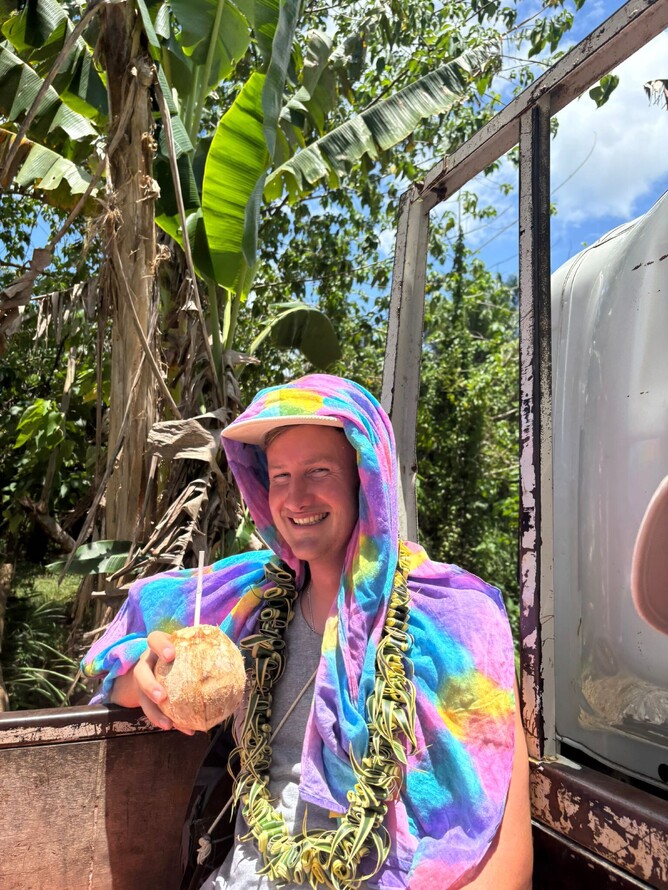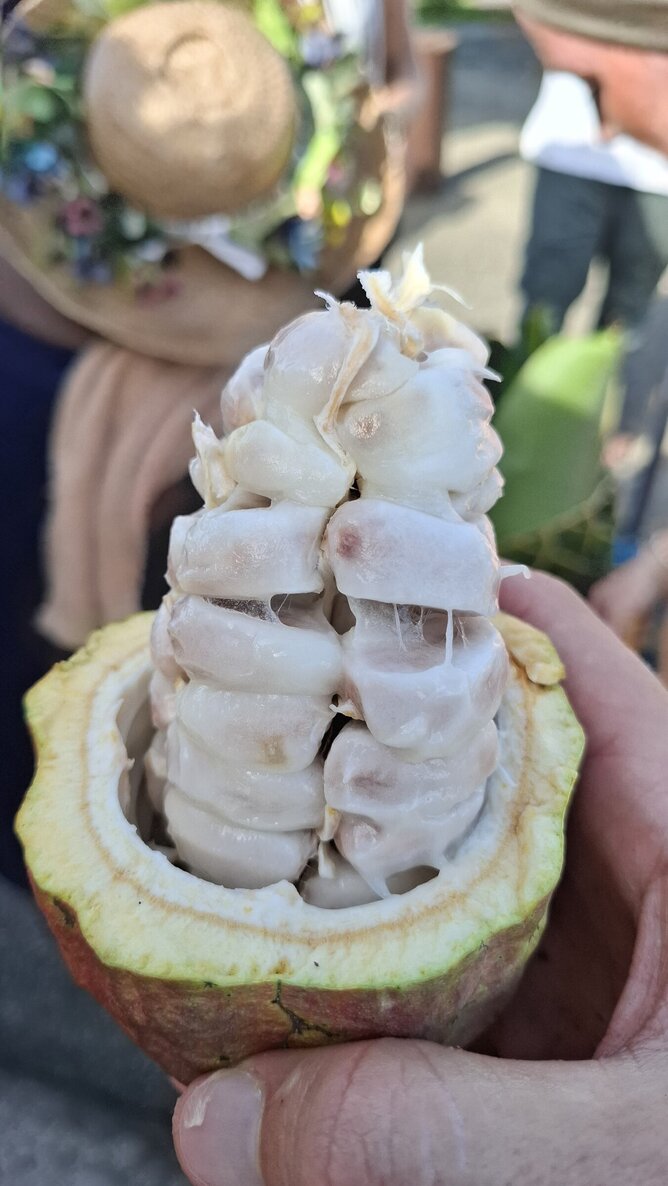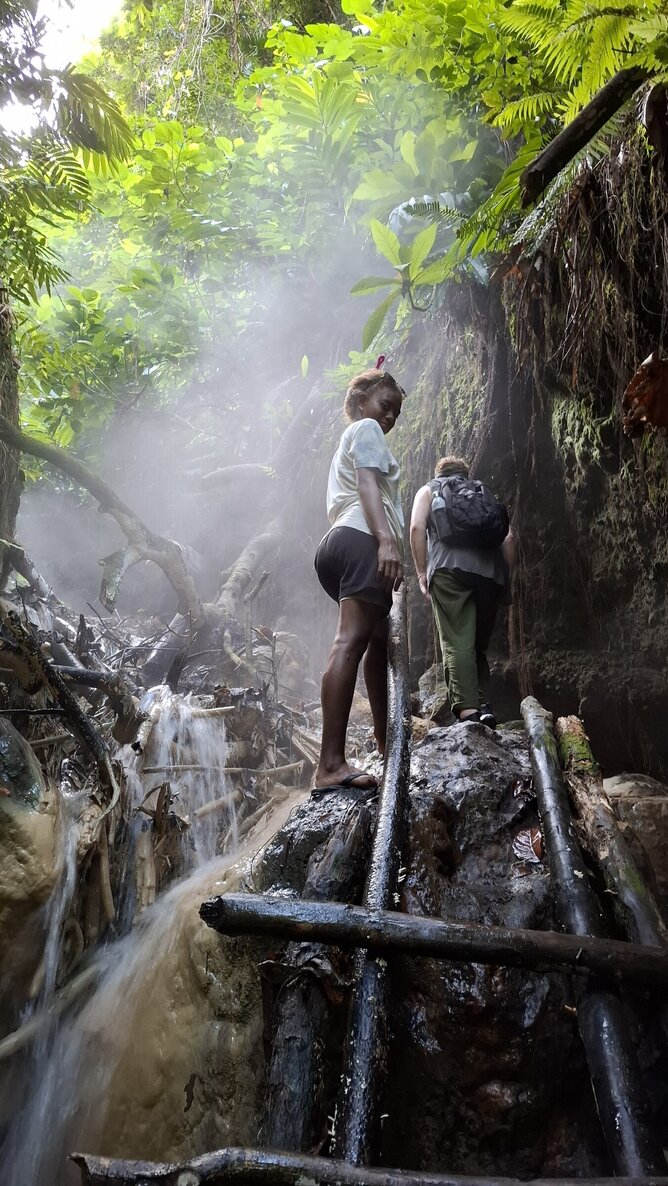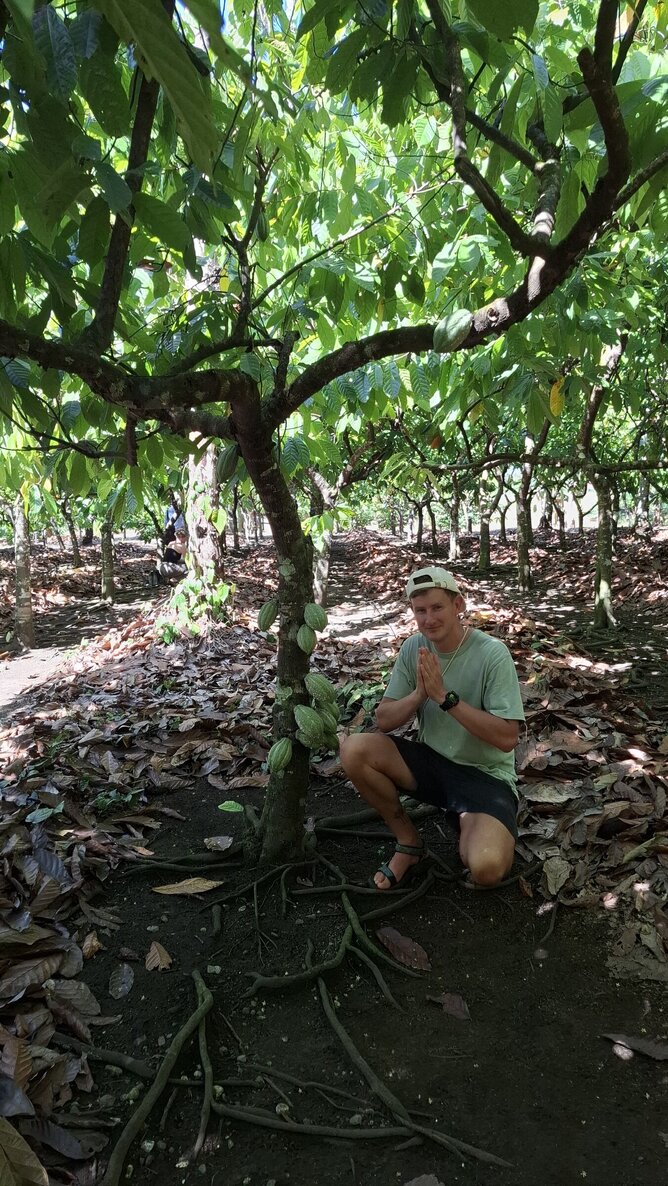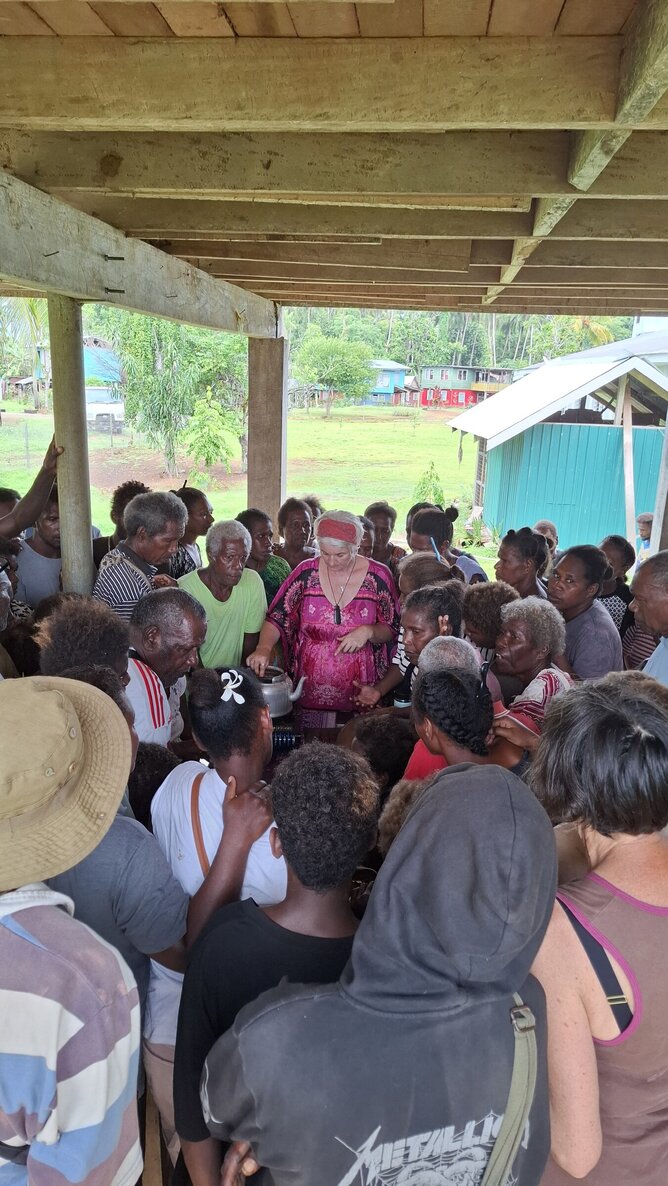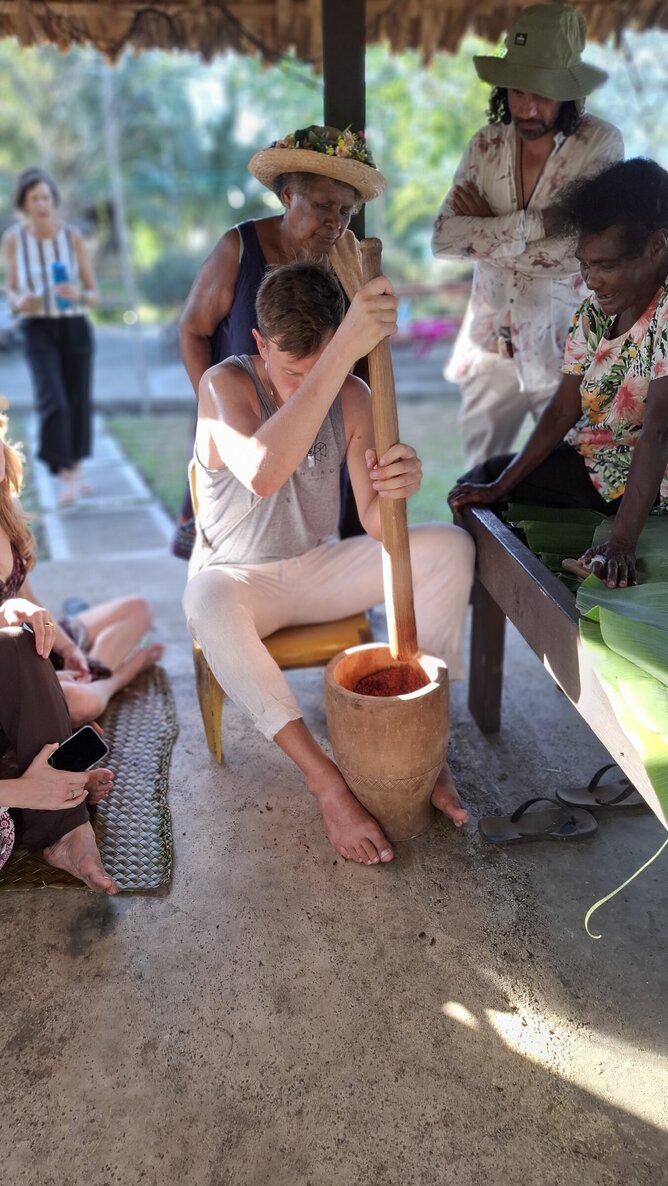I've drank/worked with cacao for about 4 years now and have seen first hand how supportive it can be for myself and my clients. So much so that I offer it as part of my coaching packages. However i'd never had the chance to see the trees first hand.
Enjoying a coconut to combat the humidity as we explore a local farm.
The cacao that I sell is manufactured by The Cacao Ambassador. A New Zealand based business with a focus on ensuring the cacao farmers come first. A big part of the initiative with The Cacao Ambassador is reintroducing cacao to the farmers as the super food it is. Cacao originates from South America, but when westerners discovered that it could be grown all around the equator the traders took it throughout Africa and the Pacific. Whether forgotten or by design, the trees were introduced to the people of the Pacific, but they were never told what it was for. Even now, cacao farmers are selling their product at the bulk market in order to have money to buy things like Milo (the chocolate drink), which is made with cacao.
A cacao pod and raw fruits
A large part of our journey to the Solomons was to visit remote villages to share the knowledge of not only how to dry and roast their beans, but to make a chocolate drink for themselves with local ingredients so that they may experience the health benefits. One of the greatest health risks in the islands is diabetes and cacao naturally helps to support the regulation of blood sugar. Not only only that, its a natural antidepressant, highest plant source of iron, and hormone regulator (great for woman during their cycle), amongst other things.
I was in the Solomons for ten days. Much like my time in Egypt (link here) , this was a real adventure. We ate cacao straight from the tree, ventured deep into the jungle to visit remote villages, swam with dolphins (while being dragged behind boats, followed boiling, thermal rivers up to the top of volcanos, snorkelled coral reefs, and traveled in tiny boats 2 hours off shore to remote islands.
Our guide taking us up a thermal river to the top of a volcano
Me hiphop squating under a cacao tree. Note the fruit on the trunk.
It was so fascinating to witness the way the trees grow. Unlike most fruit trees, the cacao pods grow straight from the trunk and bows of the tree. The pods take about 9 months to grow, but if the cacao is not picked, it will stay and dry up on the tree, as the tree absorbs the nutrients.
There is so much confusion/misinformation around cacao, what it is, where it grows, the trendy marketing terms like “raw” and “ceremonial”, but most interesting is that although the farmers of the Solomon Islands grow cacao, a majority have no idea what it is used for. They sell it unprocessed to the bulk market and use the money they receive to by things like Milo (processed drinking chocolate). A large part of the work the group I went withs work is supporting the farmers to process their cacao so it A) lasts longer, B) is worth more (to the consumer, and can be sold locally) and C) they can drink it themselves to gain the benefits of this powerful superfood.
We had the pleasure of visiting a number of villages, being immersed in the culture, and teaching the locals how to add value to their cacao and improve their health and well-being. Some of these villages took 3 hours on the back of a 4x4 Hilux ute down rutted out dirt roads and river crossings to reach.
The villages are beautiful, with lovely gardens and smiling faces. The locals are deeply religious, and sing joyously in pigeon english. No matter your view it's heart warming to be surrounded in such a loving energy.
The founder of The Cacao Ambassador showing locals how to make their own "milo".
As with all travel, one of the most powerful aspects is the people you meet. The people of the Solomon Islands are beautiful. They are so genuine and loving, as with all of society, there are exceptions, but for the most part, this was my experience.
They are deeply religious, and the church it a pillar in their communities. Im not one to be a huge fan of that particular system, but the way in which it manifests for them is rather extraordinary. They love to sing of their appreciation of Jesus. Their songs in a mixture of local tongue and pigeon english. At many of the welcoming ceremonies onto local farms, their songs left a lot of watery eyes, not from a place of heaviness, but of the pure joy and gratitude they had for their lives, and the support of Jesus.
At these ceremonies we as the foreigners gave speeches. One thing I found challenging was explaining the pains of the west to these people. Challenges like depression and anxiety are completely unknown concepts. They do not comprehend why or how someone would feel such a way. It really put into perspective, how much the system which us westerners function within is affecting us, that coupled with our lack of community, something which the local people have in abundance.
Pounding freshly roasted cacao nibs into cacao paste
As I said earlier, it was a proper adventure sleeping on mats on the floor of open air buildings under mosquito nets, eating local food and bathing in rivers.
The Solomon Islands only receives about 15,000 tourists a year, so the infrastructure is very basic, especially due to the cost of power. The only tarsealed road in the whole island is the main street, which was done by the Chinese, and the only escalator was fuctional for one day, before it broke down and became a glorified stair case. At some point outsiders thought it would be really helpful for the locals to have a pedestrian crossing. This has since been removed as it was causing enormous traffic jams. Life is very different over there and I am so grateful to have had the opportunity to experience it.
All in all, it was an amazing experience, its not often you get to immerse yourself so deeply in a foreign land with a culture which has remained relatively true to its original culture. I really love the work The Cacao Ambassador does, empowering the farmers to create higher quality products, value add, create local market sales, and support the health of Pacific Islanders. In my opinion it also creates a powerful product, not only taste wise, but also energetically, knowing the locals are taken care of first and foremost.
Please get in touch if you'd like to purchase some of this beautiful pacific cacao for yourself.
